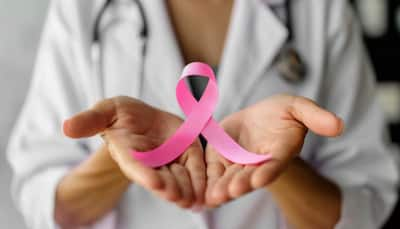The formation of kidney stones is a complex and multifactorial process. They may form due to intrinsic causes (age, sex, and heredity) or extrinsic factors (such as geography, climate, dietary, mineral composition, and water intake). Renal stone formation is a biological process that involves physicochemical changes and supersaturation of urine. As a result of supersaturation, solutes precipitate in urine leading to nucleation and then crystal concretions are formed. Dr P Sridhar, Consultant Urologist, Asian Institute of Nephrology and Urology Vizag shares in detail with Zee News Digital – the reasons behind kidney stone formation:
Consuming too much sodium (salt) can lead to increased calcium excretion in the urine, which can contribute to the formation of calcium-based kidney stones.
Foods high in oxalates (e.g., spinach, beetroot, chocolate, coffee, nuts, sweet potatoes etc) can increase the risk of forming calcium oxalate stones, which are the most common type of kidney stones.
A diet high in animal protein (such as red meat, chicken, fish etc) increases the excretion of calcium and uric acid, which can increase the risk of both calcium and uric acid stones.
Not drinking enough water leads to concentrated urine, increasing the likelihood of stone formation. Staying well-hydrated helps dilute substances in the urine that could form stones.
Diets high in fructose, especially from sugary drinks and processed foods, can raise the risk of kidney stones by increasing uric acid levels in the blood, contributing to uric acid stone formation.
While dietary calcium usually helps prevent stones by binding to oxalate in the digestive tract, consuming very high levels of calcium (mostly from supplements, not food) may increase the risk.
The symptoms of kidney stone are related to their location whether it is in the kidney, ureter or urinary bladder. During the formation stage Kidney stones often don’t cause any pain. However, as these get into a crystalline structure, they start giving pain. Usually, pain starts in the Flank/Loin region and depending on stone location it can radiate to the lower abdomen or testicular region. Other symptoms of stones may include urinary frequency/urgency; Painful urination; Hematuria (bloody urine); Nausea/Vomiting/Fever when a stone is severely obstructing and causing infection.
The treatment of kidney stones depends on the size, type, and location of the stones, as well as the severity of the symptoms.
Drinking plenty of water to flush out the stone
Over-the-counter pain relievers such as ibuprofen or acetaminophen can help relieve discomfort as the stone passes through the urinary tract
Some medications, such as alpha-blockers (e.g., tamsulosin), may help relax the muscles in the ureter, making it easier for the stone to pass.
If the stone is too large to pass on its own, causing severe pain, obstruction, or infection, medical interventions may be necessary:
A small, flexible tube is inserted through the urethra and bladder to remove or break up the stone. It is particularly useful for stones located in the ureter or stones in kidneys less than 2 cm in size.
In cases of very large stones in kidney, a small incision is made in the back and a scope is passed into kidney to fragment and remove the stone. This procedure is often used for kidney stones larger than 2 cm. With latest advances even this procedure is carried out using miniaturized scopes and laser (Mini-perc)
This non-invasive procedure uses shock waves to break up the stone into smaller pieces, which can then be passed through the urine. However its efficacy is less hence not used regularly.
For large stones impacted in the ureter or kidney the stone is removed in toto using a laparoscopic approach
• Open surgery : Done very rarely nowadays for large stones in the kidney or when laparoscopic equipment is not available.
Thiazide diuretics may be prescribed to reduce calcium excretion in the urine, especially for people prone to calcium stones.
For uric acid stones, this medication reduces uric acid levels in the body.
Helps prevent the formation of certain types of stones by making the urine less acidic.
If a urinary tract infection (UTI) is present or if stones cause an infection, antibiotics may be needed.
Stay informed on all the , real-time updates, and follow all the important headlines in and on Zee News.










